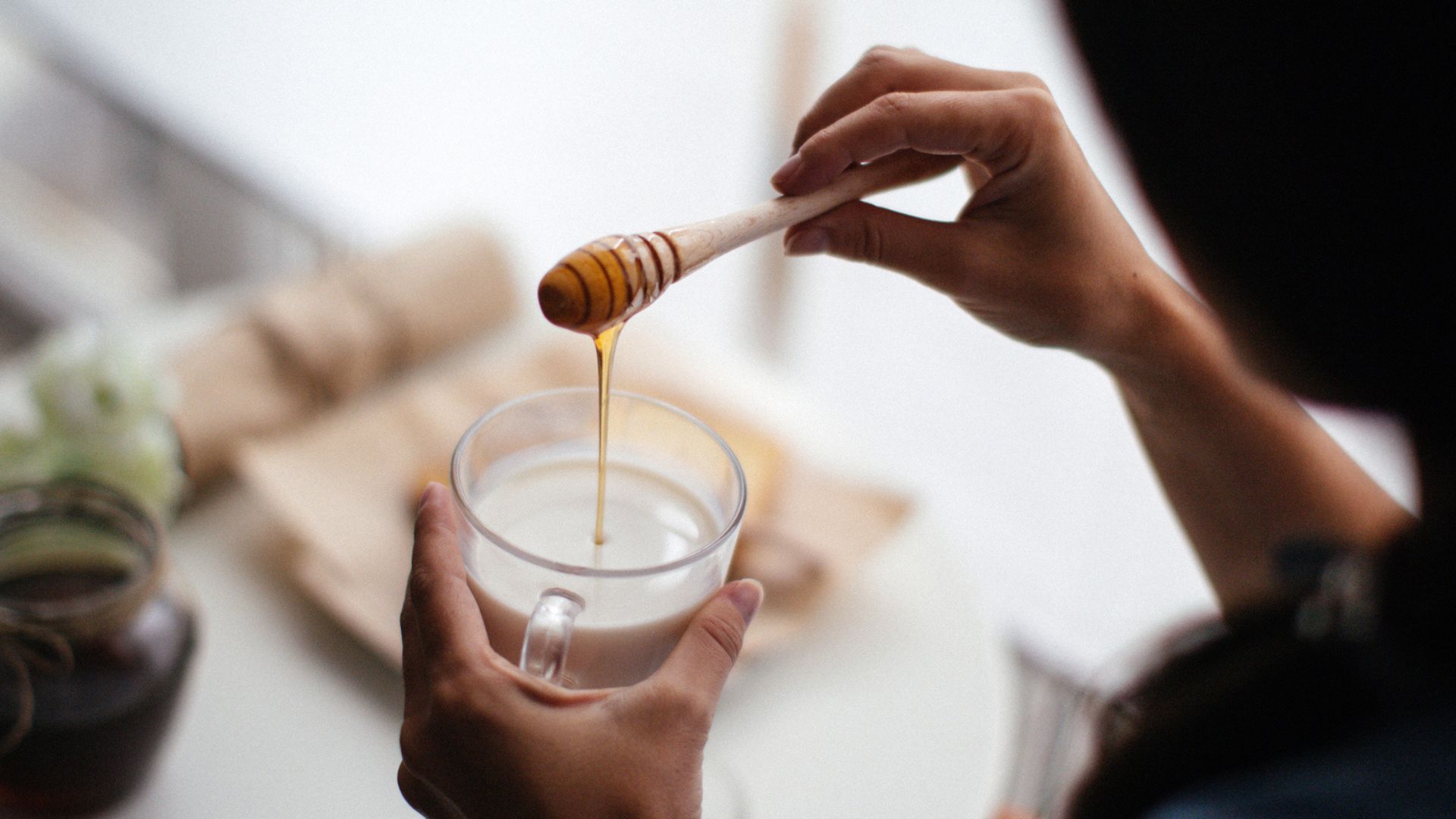The 8 worst foods for gut health, revealed by nutrition experts
A nutritionist and dietitian reveal the worst foods for gut health - and some of them you might not be expecting


Many of the worst foods for gut health are commonplace in our everyday diets, unfortunately. So, if you're looking to make a change in your lifestyle for better gut health then taking a look at your eating habits is a good place to start.
As much as many gut-healthy foods find their way naturally into our diet - delicious and nutritious options like avocados, lentils, and berries - so can the worst foods for our gut as they are often the more sugar-filled, treat-like foods we crave. Others, however, we wouldn't expect to see on the list due to their other health benefits.
It's important to look after your gut and improve your gut health if you can, as it's the main way we absorb nutrients, says nutritionist Jenna Hope. "Since all the food we consume passes through the gut, everything we eat has a significant impact on the gut microbiome and the gut lining," she explains. "Some foods can feed the beneficial bacteria in the gut and others can feed the pathogenic bacteria, otherwise known as the 'bad' bacteria. Higher levels of this pathogenic bacteria can negatively affect the normal function of the gut."
In turn, research from George Washington University among others tells us that a poorly functioning gut can lead to other difficult side effects like fatigue, skin problems, unwanted weight loss or gain, sleep issues, and food intolerances. So, to reveal the worst foods for gut health and the impact they could have, we speak to two certified nutritionists.
The worst foods for gut health
1. Fried foods
It might come as no surprise that fried foods sit among the top worst foods for gut health, considering their reputation overall. While it's still important to have foods you enjoy but are not necessarily considered 'healthy' in your diet, provided it's in moderation, the impact of this top takeaway choice can't be denied.
"Fried foods are typically very high in saturated fats, which can negatively affect the integrity of the gut lining," says Hope, who is also the author of How To Stay Healthy. "If the gut lining is compromised, this can pose a risk of unwanted pathogens being able to pass through the gut and into the bloodstream." This then affects pretty much everything in the body from your digestion to your immunity, meaning you're more likely to catch a cold or flu.

Registered nutritionist and author Jenna Hope has a Bachelors and Masters degree in Nutrition. Jenna is the founder of Nutrition Consultancy and Clinic, Jenna Hope Nutrition. She works closely with individuals, brands, companies and the media to help them interpret the science in order to implement smarter strategies for nutrition and support health and wellbeing for the long term.
2. Ultra-processed protein bars
There are many benefits of protein powder for women but overly processed protein bars aren't doing anyone any favours, says Hope. "Many protein bars on the market these days contain a whole host of artificial additives and preservatives along with artificial sweeteners. Artificial sweeteners can give rise to the pathogenic bacteria (bad bacteria) in the gut and consequently overconsuming these bars can disrupt the balance of the bacteria in the gut."
Sign up for the woman&home newsletter
Sign up to our free daily email for the latest royal and entertainment news, interesting opinion, expert advice on styling and beauty trends, and no-nonsense guides to the health and wellness questions you want answered.
If you are looking for a protein-rich snack, consider one of the best protein powders for women instead as many of these contain additional vitamins and minerals to enhance digestive health.
That being said, too much protein of any kind isn't good either. "While protein is vital for our health and should not be underestimated, consuming too much without an adequate intake of fibre can potentially be problematic for gut health," says dietitian Josie Porter, who specialises in gut disorders. "When we consume excess protein without sufficient fibre, some gut microbes can resort to fermenting these proteins. During the fermentation process, certain byproducts and metabolites are produced, such as ammonia, amines, and sulfides. These substances can have harmful effects on the gut environment."
So whether you choose to make your own protein bars or buy fewer ultra-processes ones, be sure to always pair your protein with fibre rich plants. For example, add in some fruits and oats to your protein shakes.

Josie Porter is a registered dietitian who specialises in weight management, gut health, and women's well-being. Her work within health tech and private clinics is underpinned by evidence-based strategies, enabling her to assist many individuals in attaining their goals, whilst experiencing food freedom.
3. Red meat
A little bacon or sausage occasionally isn't going to do much harm and lean sources of red meat (such as low-fat ground beef, steak, or veal) can be part of a healthy diet, but Porter says that excessive consumption of red meat is a real problem for overall gut health.
"These meats are rich in saturated fats and can also contain compounds that promote inflammation in the gut, potentially leading to gut disorders," she says. "If your intake of these foods is quite high, try to swap out a few portions for protein rich alternatives such as lentils, beans, chicken, or omega 3 rich fish such as trout and mackerel."
If you're looking to understand your gut health in winter and how it changes, this is something to consider over the holidays.

4. Agave syrup
Perhaps one of the more surprising foods on the list is agave syrup. This vegan and naturally-occurring sweetener is one and a half times sweeter than sugar, so you need less of it for the same effect, which is why it's often suggested as a replacement. It's not all it's cracked up to be though when it comes to our gut health.
"This may sound controversial as agave is often painted as a healthier sugar, but it's predominantly isolated fructose, which can be problematic for the gut lining," says Hope.
Agave does come from fruit and when it comes to our gut health, eating fruit and extracted agave are two different things, she says. "When the fructose is consumed within the fruit, it’s consumed alongside the fibre which helps to metabolise the fructose. Without the presence of fibre, isolated fructose is not very well metabolised and can play havoc on the gut lining."
5. Sweets
Given that artificial sweets are almost totally pure sugar, they're certainly one of the worst foods for gut health.
"Sweets are high in sugar which can feed the pathogenic bacteria in the gut and they also typically contain artificial flavourings and colours, which can also contribute to poor gut health," says Hope. "Where possible try to opt for dried fruit as a healthier alternative."
6. Ultra-processed cereals
In a similar way, high-sugar cereals are one to avoid if you can. "Many ultra-processed cereals can fool you by fortifying them with key nutrients," warns nutritionist Jenna Hope. "However, ultra-processed cereals are often high in sugars and refined ingredients whilst being lower in fibre too."
This is also important as getting enough fibre and having a high-fibre diet are seen as one of the easier ways to improve your gut health.
7. Refined grains
The same goes for all types of refined grains, Porter says. "These are not bad for our gut health in moderation but if we frequently use them over whole-grain alternatives, we may be limiting our gut health. This is because refined grains have had their bran and germ removed during processing, which results in a loss of valuable fibre. A lack of fibre can then lead to imbalances in the gut microbiota and this could lead to digestive issues," she says. Gut health supplements can help with this in some cases.
Much like red meat, choosing white rice over wholegrain is fine once in a while but if you're particularly weary of your gut health (or looking to eat more foods rich in magnesium for better sleep) then it's a good idea to prioritise fibre-rich grains in your daily diet. "Try to eat refined grains such as white bread, white rice, and baked goods in moderation, and always supplement with plenty of high-fibre plant foods," Porter adds.
If you struggle with digestive problems already, such as bloating or gas, then it's worth taking a look at your intake of bread and other wheat products too, as this is one of the many typical foods that cause bloating.

8. Alcohol
We know that alcohol isn't the best for our bodies but the link between alcohol and gut health is certainly a negative one. Most simply, alcohol disrupts how sugar is digested and the balance of that all-important 'good' and 'bad' gut bacteria. Anyone who's woken up with a stomach-churning hangover may know that already, along with anyone who's explored the link between gut health and anxiety before.
Excessive alcohol consumption can lead to more long-term problems as well, explains Porter. "New research has found that alcohol consumption may disrupt the communication between the gut and the liver, known as the gut-liver axis. Although we are still learning more about this axis, it's thought that when this axis is disrupted, it may lead to gut-related issues," she says.
"That's why, even though red wine (and even beer!) contain beneficial polyphenols, it's best to moderate our alcohol intake and turn to food to get the polyphenols instead." Instead, learn how to cut down on alcohol by swapping out a nightly beverage for one of the many alternatives to alcohol, such as sparkling water or kombucha.
What are the signs of an unhealthy gut?
- Stomach issues, including regular gas and bloating
- Weight fluctuations
- Sugar cravings
- Skin issues, particularly acne, rosacea, eczema, dandruff and psoriasis
- Mood swings and irritability
- Difficulty concentrating
- Fatigue
- Insomnia
What foods heal your gut?
If you're looking to make changes to your diet to better your gut health, then switching to a mostly plant-based diet - one that includes fruits, vegetables, whole grains, and legumes - can help. "These foods are packed with fibre, including specific types of fibre such as resistant starch and prebiotics, which our gut bacteria loves to feed on. In return, they release helpful metabolites called short-chain fatty acids. These can travel all over our body and even into our brain, where they can have numerous health benefits," says Porter.
As well as feeding the existing bacteria, adding new beneficial bacteria via fermented foods and other probiotic foods can help restore your gut to full working order, she says. "Numerous studies have linked these foods, especially live yoghurt and kefir, to health benefits."
If you have any concerns about your health, whether that's your gut health or overall health, speak to your doctor or a registered nutrition professional.

Grace Walsh is woman&home's Health Channel Editor, working across the areas of fitness, nutrition, sleep, mental health, relationships, and sex. She is also a qualified fitness instructor. In 2025, she will be taking on her third marathon in Brighton, completing her first ultra marathon, and qualifying as a certified personal trainer and nutrition coach.
A digital journalist with over seven years experience as a writer and editor for UK publications, Grace has covered (almost) everything in the world of health and wellbeing with bylines in Cosmopolitan, Red, The i Paper, GoodtoKnow, and more.
-
 Unforgettable date ideas to make a great first impression or rekindle romance
Unforgettable date ideas to make a great first impression or rekindle romanceForget the same old first date formula - these unforgettable date ideas will leave them thinking about you long after you go home
By Natalie Denton Published
-
 Butter yellow might be the colour of the season, but Amal Clooney is making me want to try sunshine shades
Butter yellow might be the colour of the season, but Amal Clooney is making me want to try sunshine shadesSpark some joy by adding some statement yellow pieces to your wardrobe just in time for summer
By Matilda Stanley Published